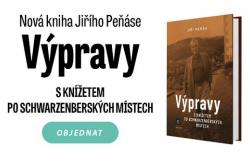/From a special correspondent from the Netherlands./
It is only 20 minutes away from Amsterdam, but it is a completely different world. The former fishing village of Volendam, which today is mainly supported by tourism, became one of the strongholds of Geert Wilders’ far-right Party for Freedom (PVV) in the last election.
There is a sleepy atmosphere on a weekday morning in April in the picturesque harbor full of shops with clogs, fish restaurants and photo studios where tourists can take pictures in traditional costume. Tourists mostly of retirement age are walking along the promenade, Dutch and French can be heard. Bigger traffic comes only on Saturday mornings, when the harbor comes alive with a market.
Volendam, with a population of about 20,000, has been talked about in recent years as the most right-wing city in the Netherlands.
In last year’s parliamentary elections, conservative voters here unequivocally favored Wilders – the controversial politician, who wants to ban the Koran and close mosques, among other things, won 42 percent of the vote here. After all, Volendam was the place where he started his election campaign by visiting the port and discussing with local fishermen.
After the victory in last year’s parliamentary elections, when the PVV won 37 seats, it seems that success awaits it in the June elections to the European Parliament.
Europe before the elections
Seznam Zpráv correspondents travel to European countries before the June elections to the European Parliament. Milan Rokos is already preparing a series of texts from the Netherlands, Filip Harzer will head to Hungary this week. You can also look forward to reports and interviews from France, Austria and Germany.
In Volendam, people speak clearly: “We all vote for the PVV here. We don’t want to give money unnecessarily to the state, we work hard and he promotes lower taxes,” says eighteen-year-old waitress Gia, who works in one of the cafés in the port. He also shares with Wilders his opposition to migration – near the city, it is said, the state housed migrants and people started losing their bikes from then on.
“They could send them to Africa, there’s plenty of room in the Sahara,” suggests Gia. To the remark that armed conflicts are taking place there in some countries, he responds with another idea: “Or to the American Arizona, there are mountains, there is also enough space.”
Her argument about hard work also appears in conversation with other people. A fish seller who introduced herself as Darling also voted for Wilders: “I’m not a racist, but a lot of migrants come here, they get money from the state. We, especially here in Volendam, are used to working hard six days a week and we don’t like this,” he says. But he admits that he does not agree with all of Wilders’ program.
They have iPhones, but they want money from the state
Klaas, a construction worker, is also described as an ardent supporter of Wilders’ PVV, who remembers that just a few years ago Volendam was a poor community. “We had to work very hard, now there is more business and that is exactly what Wilders supports,” says the man, complaining that young people today have to live with their parents because they cannot afford apartments.
“There are 18 million people living in our country, and if it continues like this, it will change completely. People come from Africa, they have iPhones, but they want money from the state,” is a frequent argument used by opponents of migration. But he also assures that he is not a racist and has nothing against foreigners: “I like all people, but when they come, they have to work,” he emphasizes.
Photo: Sz – Milan Rokos
“Despite Wilders’ radical proposals, which include the Dutch exit from the European Union, I would not talk about the extreme right in his case,” Willem Wagenaar, an expert on political extremism at the Anne Frank Foundation in Amsterdam, told Seznam Zprávám.
They distinguish between Dutch and migrants
According to him, the extreme right is characterized by two elements that must be at the core of its ideology. “She would fulfill the first point, because they make a big difference between the Dutch and migrants, or between the Dutch and Muslims – so they are against some group on the basis of an ethnic key. But the second thing that must be at the core of their ideology is a commitment to an anti-democratic, or rather autocratic, ideology. And that’s not that simple,” he explains.
“When describing Wilders’ party, I would rather use the term populist radical right, which is coined by the well-known Dutch political scientist Cas Mudde from the University of Georgia,” clarifies Wagenaar. When asked whether, in his opinion, democracy in the Netherlands is now more threatened by the extreme right or the Islamic fundamentalists, he says that at the moment it is definitely the extreme right.
The PVV, which is popular with the residents of Volendam, burst into the parliament like a flood last year, with almost a quarter of the parliamentary seats, it is a force that cannot be ignored. In the lower chamber itself, however, according to the analysis of the NRC newspaper, it is not so obvious – MPs from Wilders’ party do not often go to the parliament and are not particularly active.
Wilders’ one-man political project (the politician is the only member of the PVV) should be experiencing its peak and close to achieving its goals: to rid the country of migrants and multicultural society and “return the Netherlands to the Dutch”. Despite their numerical strength, they do not use their influence.
There is also a cult of one man in the party: other MPs and journalists have trouble talking to colleagues from the PVV. PVV people refuse requests for interviews, MPs know that Wilders wants them to keep their distance from journalists. According to the NRC, there is a strict hierarchy in the parliamentary faction. Wilders is the boss and it is clear in interviews that Wilders demands restraint from his inexperienced MPs.
In Volendam, despite the embarrassing introduction, the party is probably certain of victory in the parliament. During his visit to the city, the Seznam Zpráv reporter met only one man who will not vote for Wilders. The others either joined him or did not want to talk about politics.
After being asked about Wilders, the bearded man in his forties in overalls thought for a moment: “He is a man of strong opinions… but he is not my cup of coffee,” he replied, apologizing that he was rushing to work. “Demolition man,” he still managed to answer with a laugh when asked what he was doing.
Tags: votes Wilders demolition man
-





